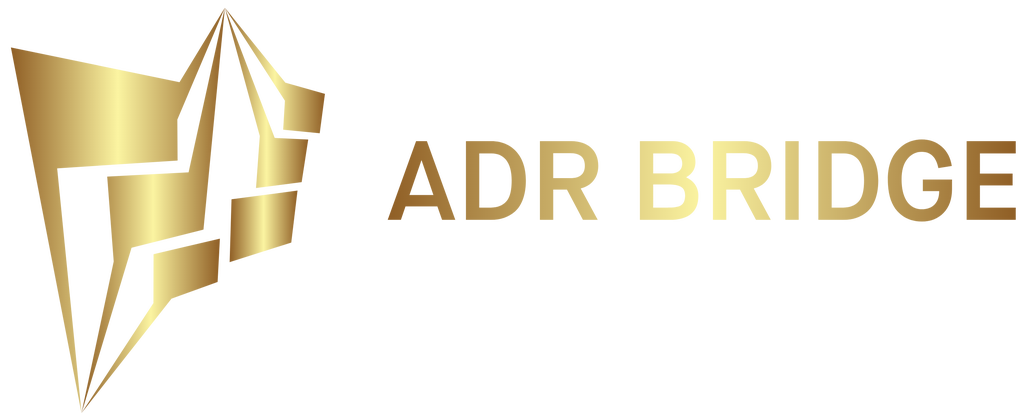Alternative Dispute Resolution (ADR) is a mechanism that was introduced in Canada under the Legal Services Authorities Act 1987 in order to provide an alternative method to the official judicial procedures in resolving disputes. It is an effort to design a workable and fair alternative to the traditional judicial system. It is a fast track system of dispensing justice with the main characteristic is to accomplish an agreement between the parties involved in legal conflicts and disputes, which can be resolved privately.
ADR provides a confidential and alternative method of tackling legal disputes, which avoids going public through the courts. It gives parties in dispute the opportunity to work through disputed issues with the help of a neutral third party. It is generally faster and less expensive than going to court and can reduce stress (from court appearances), time and cost.
The most common types of ADR are conciliation, mediation, arbitration, adjudication, neutral evaluation, collaborative law (Divorce or Family Law), settlement conferences and community dispute resolution programs. Conciliation is included as a category, but for simplicity may be regarded as a form of mediation.
ADR can resolve all civil disputes including Personal Injury, Medical and Legal Malpractice, Underinsured and Uninsured Motorist, Property, Casualty and General Liability, Professional Liability, Commercial, Employment, Insurance Coverage, Workers’ Compensation, Contract and Family Law matters.
In some jurisdictions, ADR scope is limited to commercial disputes only.
ADR is not compulsory. There is no general rule in law that says that ADR must be used to resolve a dispute. However, there are cases where ADR is compulsory in a number of business sectors, particularly in consumer disputes.
The best amicable methods in ADR are Arbitration, Adjudication, Conciliation, Mediation, Facilitation and Negotiation.
Arbitration is like the court process as parties still provide testimony and give evidence similar to a trial but it is usually less formal. Arbitration is final and legally binding – it is enforceable in the same way as a court judgement.
Adjudication is a simpler form of Arbitration. It is a process by which an Arbiter reviews evidence and arguments including legal reasoning set forth by opposing parties or litigants to come to a binding decision, which determines rights and obligations between the parties involved.
Mediation/ Conciliation is a peace-keeping process of negotiation with the assistance of a neutral third party (Mediator). The parties do not reach a resolution unless all sides agree. The Mediator has no decision making power, which means the dispute will be resolved on the terms of the disputants through an all sign a legal agreement documenting the resolution which shall be legally binding.
Facilitation is a process in which a trained and experienced Facilitator, who is not a stakeholder, plans, develops, and conducts a structured and effective meeting that produces a clear result commonly understood and supported by all participants.
Negotiation is a method by which people settle differences. It is a process by which compromise or agreement is reached while avoiding argument and dispute. In any disagreement, individuals understandably aim to achieve the best possible outcome for their position (or perhaps an organization they represent). A process has no fixed rules but follows a predictable pattern. It is the simplest means for redressal of disputes. In this mode the parties begin their talk without involvement of any third party.

More on Settlement Council here.
The processes of Conciliation (Third Party Neutral) are preferred over Adversarial (Adjudicated) ones. Disputants are recommended to explore the ADR processes (Negotiation, Facilitation, Mediation and Arbitration) in sequential order, prior to considering Litigation as a last resort.
Prevention is better than cure. The best way to resolve a dispute is among yourselves. Open communication channels, sit together, keep your ego aside, negotiate and settle the dispute. You may need to make some compromises but that’s life and totally worth it if it leads to peace of mind. You must resolve your dispute at the earliest before allegations and counter allegations spoil your relationship to the point that settlement becomes even more difficult. Mediation is an excellent way to prevent disputes escalating as you can nip them in the bud. Mediatian can be used in all walk of life to develop a Culture of Peace with collaborative effort.
Proverbs:
"If you show patient in one moment of Anger, you will escape 100 days of Sorrow" - Chinese
"An ounce of Mediation is worth a pound of Arbitration and a ton of Litigation" by Joseph Grynbaum
"Discourage litigation. Persuade your neighbours to compromise whenever you can. Point out to them how the nominal winner is often a real loser - in fees, expenses, and waste of time.” by Abraham Lincoln
A Mediator’s Prayer by Mr. Ting-Kwok IU (a lawyer and mediator)
Disputants, make me the instrument of your negotiation,
Where there is conflict, let me mediate;
Where there is difference, mediate;
Where there is contradiction, mediate;
Where there is discord, mediate;
Where there is litigation, mediate;
As a mediator, I assist to reframe rather than to repeat,
To communicate rather than to adjudicate,
To facilitate rather than to evaluate,
To summarize rather than to advise,
To generate options rather than to provide solutions,
To reality-test rather than to protest.
It is in letting go that we move on;
It is in wearing the shoes of your foe that we empathize;
It is in accommodating our adversary that we satisfy our own claims;
It is in striving for a settlement that we find peace.
—————————————————
